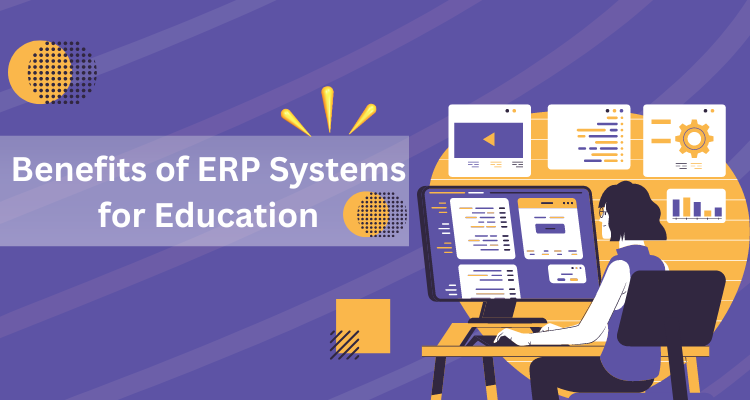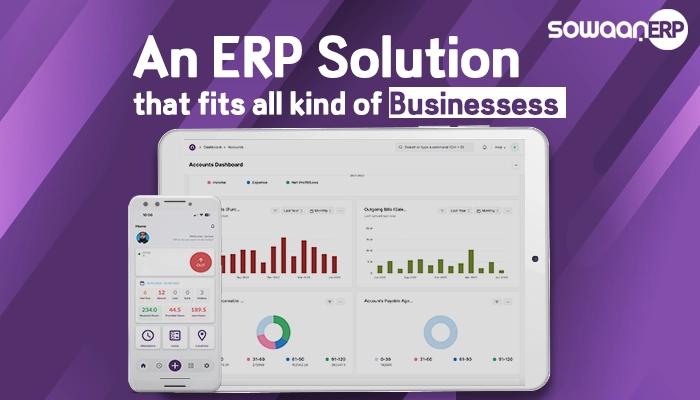
Indeed, ERP systems have transformed the dynamics of educational management, offering a comprehensive solution for handling various administrative tasks. ERP systems for universities significantly enhance operational efficiency, leading to seamless coordination among different departments. By automating routine tasks, they allow staff to focus on more critical areas, thus improving productivity and effectiveness. Furthermore, they provide real-time information, enabling prompt decision-making and improved communication within the institution.
How ERP systems are beneficial for universities in Saudi Arabia?
Streamlining admissions with ERP systems
One of the primary benefits of ERP systems for universities is the streamlined and simplified admission process. ERP software can automate tedious tasks, making the admissions process faster and more efficient. This not only saves time but also reduces the chances of human error.
Certainly, the ERP systems are designed to handle large volumes of applications, each with numerous data points. They can automatically sort these applications based on predefined criteria, ensuring that only the most eligible candidates are considered. Moreover, they provide a digital platform for applicants, making it easier for them to submit necessary documents and track their application status. By reducing paperwork and manual intervention, ERP systems significantly enhance the admission process’s transparency and accuracy. Furthermore, these systems can also integrate with other platforms, enabling universities to reach out to more prospective students and thus widen their applicant pool.
Centralizing data management
Absolutely, the power of centralized data management extends beyond just convenience. ERP systems for universities can consolidate all institutional data into a single, accessible platform. This means everything from student grades and attendance records to faculty schedules and administrative documents can be found in one place.
This centralized approach eliminates data silos, promotes consistency, and improves data integrity. It also supports better decision-making as administrators have access to accurate, up-to-date information at their fingertips. Moreover, it simplifies compliance with various regulations, as all necessary data is readily available and easy to retrieve.
Finally, by enabling real-time updates, ERP systems ensure that all stakeholders, including students, faculty, and staff, have access to the most current information. This promotes transparency and enhances collaboration across the university.
Enhancing cost-effectiveness
Implementing ERP systems in universities can lead to significant cost savings. By automating various processes, these systems reduce the need for manual labor, thus lowering operational costs. Furthermore, they help in better resource allocation, enhancing overall cost-effectiveness.
Certainly, ERP systems for universities have a transformative impact on cost-effectiveness. By digitizing and automating numerous administrative tasks, these systems reduce the need for paper-based processes, leading to substantial savings on material costs.
Additionally, ERP systems provide detailed and accurate reports on various resources like inventory, equipment, and even human resources. This insight allows universities to identify inefficiencies and make necessary adjustments, preventing wastage and promoting optimal resource use.
Moreover, the automation of routine tasks frees up staff time, allowing them to focus on more strategic initiatives that can contribute to the university’s growth. This not only enhances productivity but also improves the return on employee investment.
Improving management processes
ERP systems for universities in Saudi Arabia have proved particularly effective in speeding up management processes. From fee payment to library and transport control, these systems facilitate quicker, more efficient operations.
Gaining insights into student behavior
Another key benefit of ERP systems is the valuable insights they provide into student behavior and activity. This data can help universities devise strategies to improve student performance and engagement, contributing to better academic outcomes.
Access to information
Education ERP systems provide easy and quick access to information about students, staff, timetables, examinations, admissions, fees, reporting, and more. This helps in making informed decisions that accelerate the growth and success of the organization.
Future trends in ERP Systems for universities in Saudi Arabia
Undeniably, future trends in ERP systems for universities in Saudi Arabia are set to revolutionize the educational landscape. With the integration of AI and machine learning, these systems will offer predictive analytics that can help universities forecast enrollment rates, student performance, and budget requirements, enabling more strategic planning and decision-making.
Moreover, the growing use of mobile applications will allow students and faculty to access information and services anytime, anywhere, enhancing convenience and flexibility. Advanced security measures, including encryption and multi-factor authentication, will also be more prevalent, protecting sensitive data from potential breaches.
Finally, we can expect a rise in cloud-based ERP solutions, offering scalability, cost-effectiveness, and easy maintenance. This shift towards cloud computing will enable universities to stay current with technological advancements, ensuring they continue to reap the benefits of ERP systems.
Conclusion
Investing in ERP systems for universities is a smart move. Benefits of ERP systems for universities in Saudi Arabia are numerous. From streamlining processes to centralizing data and providing valuable insights, the benefits of ERP systems for universities are manifold. As we look to the future, these systems will continue to evolve, offering even greater advantages to educational institutions in Saudi Arabia and beyond.
If you’re looking to buy ERP systems for universities in Saudi Arabia, it’s important to choose a system that aligns with your institution’s unique needs and goals. With the right ERP system, your university can enjoy enhanced efficiency, cost savings, and improved decision-making capabilities.


